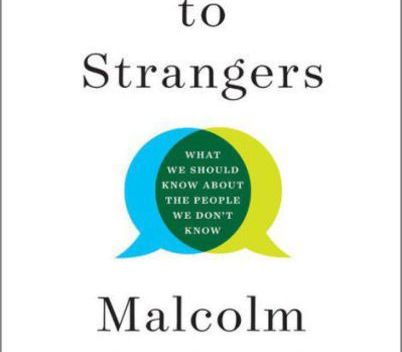
Lifestyles
BOOKS: Talking to Strangers: Malcolm Gladwell
We don’t understand each other. We know that. We read Facebook, watch a cable news channel that does ... Read more

We don’t understand each other. We know that. We read Facebook, watch a cable news channel that does ... Read more

The second volume in William Manchester’s “The Last Lion” Winston Churchill trilogy is titled “Alone 1932-1940.” The nearly ... Read more

Robert Harris doesn’t change history in his latest novel, “Munich,” but he does take a different look at ... Read more